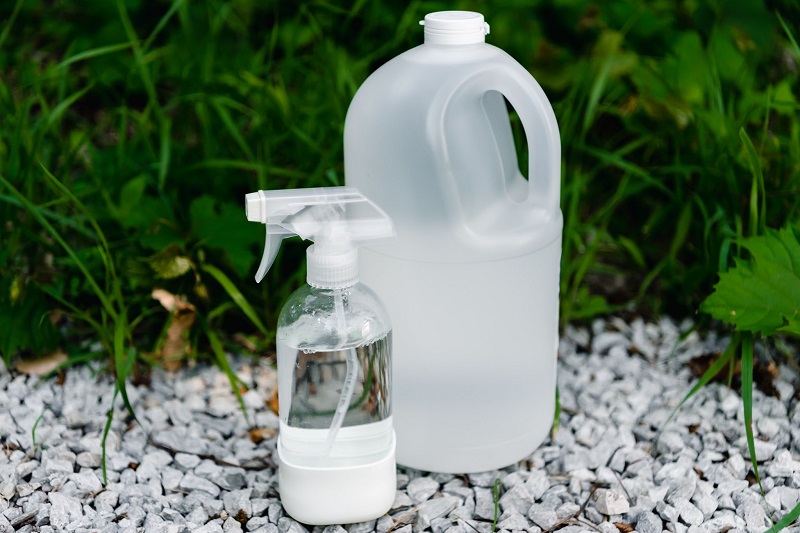One little mistake in one part of your house can sometimes be the cause of some big issues in the kitchen or around the home. Unfortunately, this may also happen with your garden! Find out in this article what to do if someone spilled vinegar on your plants and how a spray bottle full of water mixed with vinegar can help get your plant back on its feet so quickly.
How to clean the plant if accidentally sprayed with vinegar
If you accidentally spray your plant with vinegar, you can do a few things to clean it up. First of all, rinse the plant off with water. This will help remove any excess vinegar and make the plant more comfortable to reach. If the plant is too wet, allow it to dry completely before continuing. Otherwise, use a mild soap like Dawn or dishwashing liquid to clean the plant. Be sure to rinse off all of the soap and water before continuing. Finally, dust the plant with a light layer of flour or compost to help absorb any residual vinegar and provide fertilization.
The most important step is to try to remove as much of the vinegar as possible. This means rinsing the plant thoroughly, using hot water if necessary, and drying it off thoroughly. You may also want to soak cotton balls in watered-down vinegar and place them on the plant’s leaves to absorb any excess fluid.)
If the damage is severe, you may need to replant the whole thing. But generally speaking, your plants can quickly bounce back from a vinegar accident with a little love and care.
How do plants react to vinegar?
Contrary to popular belief, vinegar is not harmful to plants. Instead, vinegar helps clean the plant and remove particles that may harm it. If your plant is washed in vinegar, simply rinse it off and let it dry.
Here are some tips on how to help your plants:
– Give the plants plenty of water while they are healing. The plant will need to flush out all of the vinegar residues and drink lots of water to do so.
– If you have peat moss or other rooting medium, add some to help absorption.
– Avoid fertilizing or bringing in new plants while they are healing; this will only add more stress to the plant. Instead, allow the plant to repot and rejuvenate itself after being exposed to vinegar.
Be careful next time you accidentally spray a plant
If you accidentally spray your plant with vinegar, be careful next time. Vinegar can be harmful to plants and cause leaves to turn yellow and fall off the plant. If you notice this happening to your plant, remove the affected leaves and water the plant well until the leaves grow back.
Here are five tips for preventing vinegar from harming your plants.
Tip 1: Don’t use vinegar as a weed killer. Vinegar has a strong odor, so it can be tempting to use it as a weed killer. However, vinegar is very ineffective at killing weeds; in fact, it can actually make them grow larger. Instead of using vinegar, try using chemicals that are specifically designed for killing weeds.
Tip 2: Don’t pour vinegar on your plants. Not only is this a waste of vinegar, but it can also splash harmful chemicals on your plants. Instead, pour the vinegar into a container that you can later pour down the drain.
Tip 3: Protect your plants during winter dormancy. During winter dormancy, your plants go into a dormant state to conserve energy. Unfortunately, this does not mean that you should sleep under a tree. Instead, you need to protect your plants from freezing temperatures and high winds so they can grow back when spring arrives. To protect them, you will have to insulate their pots with straw or organic mulch, wrap them in blankets, and put them into garbage bags.
Tip 4: Stretch netting on top of your tulip bulbs can help repel slugs while they are still active. Your bulbs still need protection from rain, freezing weather, and high gusts. While in dormancy, your tulip is vulnerable to slugs, so you should include some type of mesh beneath their pot for protection.
Tip 5: If you are looking for wintering plants, buy bulbs that do not cost more than $3 each at first. The tulips in this family of plants should bloom only once. Bulbs that have been treated with a pesticide that has not been outlawed are generally less expensive than those that have been grown organically or those that are untreated. Ideally, you want these working bulbs to grow until they drop the petals, then stop growing and die back during the fall.
Conclusion
If you have a plant that has been washed in vinegar, the best course of action is to water it well and then wait until the plant looks dry before watering it again. Vinegar can be harmful if it comes into contact with your plant’s leaves, so make sure to avoid doing this if possible. If you do end up washing your plants in vinegar, rinse them thoroughly afterward to remove any residue.
